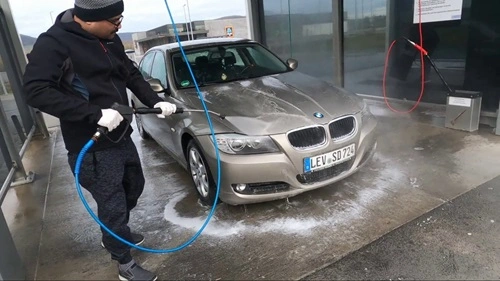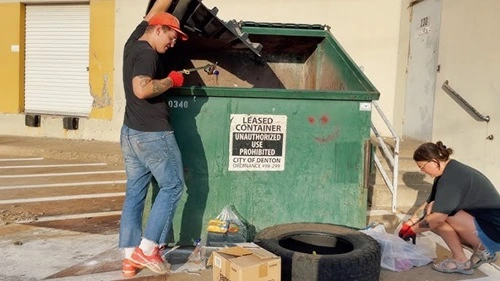Yes, in many cases, it is illegal to wash your car at home in Germany, particularly if you are doing so on public streets or in areas without proper drainage and filtration systems. Germany has strict environmental regulations to protect water resources, and these laws often restrict where and how car washing can take place.
Understanding Germany’s Car Washing Laws
Germany’s environmental laws prioritize the protection of groundwater from pollutants such as oils, detergents, and other chemicals commonly used in car washing. These regulations are governed both at the federal and local levels, meaning the specifics can vary depending on the region.
1. Federal Environmental Laws
Under Germany’s Water Resources Act (Wasserhaushaltsgesetz, WHG), it is illegal to allow harmful substances to seep into the groundwater. Washing a car at home can lead to the discharge of pollutants like oil, dirt, and soap into the soil, making it a violation of federal law.
2. Local Regulations
Municipalities enforce their own rules, which may outright ban car washing on private property or in public spaces. Most cities require car washing to take place only in designated areas, such as professional car washes, which are equipped with proper drainage and water treatment systems.
3. Exceptions
Some rural areas or private properties with specially approved drainage systems may allow car washing. However, this is rare, and permission is usually granted only if there is no risk of contaminating the groundwater.
Penalties for Washing Your Car at Home
The penalties for violating car washing regulations in Germany vary by location and severity but may include:
- Fines: Offenders can face fines ranging from €20 to €500, depending on local rules and the environmental impact.
- Legal Action: In severe cases where significant damage to the environment occurs, authorities may pursue legal action, leading to higher fines or other penalties.
Why Germany Enforces These Regulations
Germany’s strict stance on car washing stems from its commitment to environmental protection. The key reasons include:
- Preventing Groundwater Contamination: Pollutants such as oil residues, tire debris, and chemicals can seep into the soil and contaminate groundwater, which is a vital resource in Germany.
- Protecting Public Sewer Systems: Improper car washing can overwhelm public sewer systems with untreated wastewater, leading to environmental damage.
- Encouraging Eco-Friendly Practices: By requiring car owners to use professional car washes, the government ensures that wastewater is treated and pollutants are filtered before being discharged.
Alternatives to Home Car Washing
To comply with German laws, car owners can use the following options:
1. Professional Car Washes: These facilities are designed to handle wastewater and meet environmental standards. Many offer both automatic and self-service options.
2. Designated Washing Areas: Some municipalities provide designated washing areas equipped with proper drainage and filtration systems.
3. Eco-Friendly Car Wash Services: Mobile or waterless car wash services are gaining popularity as they minimize water usage and environmental impact.
FAQs
Q1. Is it illegal to wash your car in your driveway in Germany?
Ans: Yes, in most municipalities, washing your car on your driveway or in other residential areas is prohibited due to groundwater protection laws.
Q2. Can I wash my car with just water at home?
Ans: Even washing with just water is often illegal because dirt and oil from the car can still contaminate the soil and groundwater.
Q3. Are there any exceptions for washing cars at home?
Ans: Exceptions are rare and typically require the property to have an approved drainage and filtration system that prevents pollutants from entering the soil.
Q4. How much can I be fined for washing my car at home?
Ans: Fines vary by location but typically range from €20 to €500, depending on the severity of the violation and local regulations.
Q5. What are the best alternatives to washing my car at home?
Ans: Using professional car washes or designated self-service areas ensures compliance with the law and protects the environment.


